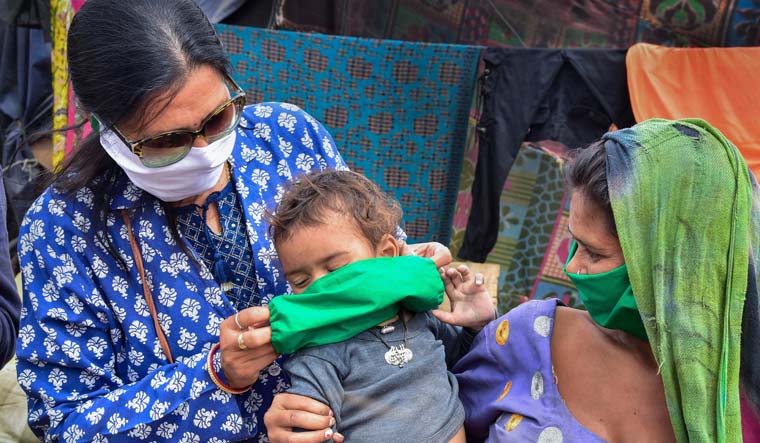In its fight against COVID-19, the Centre has decided to rope in its frontline health workers—ASHAs, ANMs and anganwadi workers—who will now be trained in prevention and control measures and community surveillance.
"This will be done through a national level training of trainers programme," Joint Secretary in the Health Ministry, Luv Agarwal said.
With this, the government will be pulling in an army of over 9 lakh ASHA workers and over 3 million anganwadi workers in the country.
Associations of ASHA workers have sought the Centre's assistance for training and protective equipment such as masks, gloves, and body suits.
Agarwal said 17 states were working on preparing dedicated hospitals for COVID-19 patients. In association with AIIMS, New Delhi, doctors were also being trained in epidemic science, infection control practices and case management.
Hectic preparations are on at AIIMS. "As of now we are preparing two facilities. One is AIIMS, because many COVID-19 patients may need additional care—they may need cardiac care or dialysis. Then there’s the trauma centre and the new building (the Burns and Plastic surgery centre behind it). We are working hard to operationalise the Burns and Plastic Surgery Centre as the triage area, and use their ICUs, and also have wards there. Gradually, we may convert the entire trauma centre for COVID care, and shift the trauma patients to the main hospital," Dr Randeep Guleria, director, AIIMS, told THE WEEK.
"If that’s not enough, then the NCI gets functional, where we have more than 500 beds. Having beds is not enough; human resource, ventilators and monitors will also be needed. If the situation is serious, then we may have to look at outsourcing from private agencies," he said.
The rate of increase of cases had stabilised in the last few days, Agarwal said, adding that 43 new cases and four deaths had been reported in the last 24 hours. "If we collectively ensure proper lockdown measures, then we can deal with the problem," Agarwal said.
However, when asked about reports of a few cases of COVID-19 patients with no travel history or contact with persons with travel history, raising concerns of community transmission, the health ministry officials vociferously denied that India has entered stage 3 of the disease.
"A couple of cases don't mean that the country has reached community transmission. At times, patients are unable to give their histories very accurately," said Dr Raman R. Gangakhedkar, head, epidemiology and communicable diseases, ICMR.
"I would like to reiterate that we are in a stage of local transmission. In Bhilwara for instance, one doctor had a travel history, he ended up infecting others. For the over 500 cases that we have now, we are tracing the contacts for everyone, and if we haven't yet been able to do for a couple of cases..it doesn't mean we have reached community transmission," said Agarwal.
He also said that if there were at least 20-30 per cent of cases in which the histories could not be established, or there were a large number of infections that could not be traced to a source, at that point, the country would be considered to have reached Stage 3, and the government would heighten the efforts to reach the general public to exercise a higher degree of caution.



